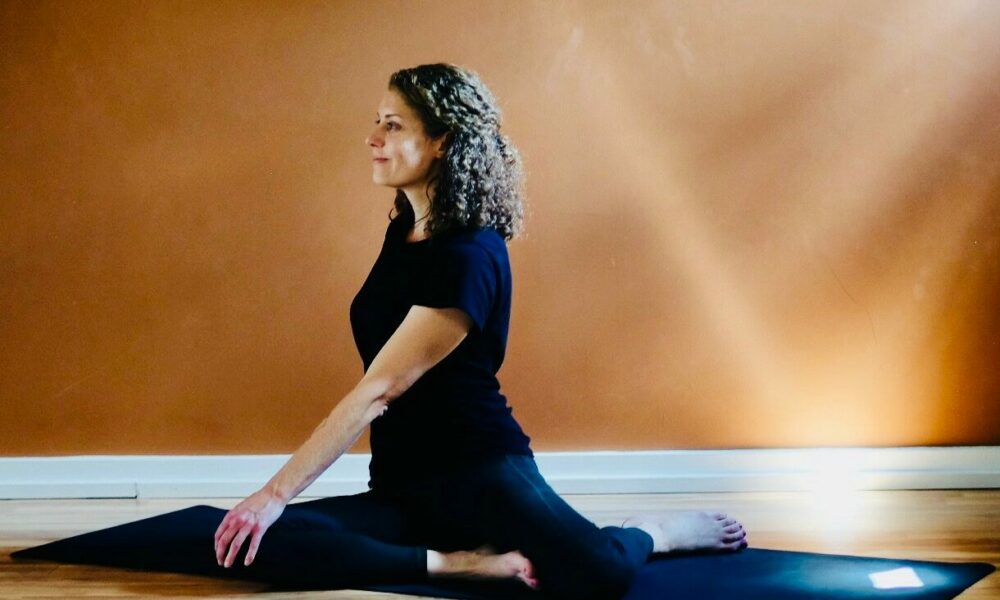

Today we’d like to introduce you to Marysa LaRowe.
Hi Marysa, we’d love for you to start by introducing yourself.
Hi! I’m Marysa. I’m a yoga teacher specializing in trauma-informed and trauma-sensitive yoga practices. I’ve lived in Nashville since 2011, and it feels like home.
I started practicing yoga in 2008. Right away, I knew it was important. The other types of exercise I did then felt like a competition with my body. At first, I definitely pushed myself into yoga, too, but I started to have these brief flashes of this feeling that I can only describe as “realness.” I’d be in a yoga shape and suddenly feel, “Wow, this is my leg! This is my hip!” It made me realize that I’d been living very detached from my body for most of my life.
I’m a trauma survivor – I experienced complex trauma beginning in early childhood. Most of the time I either felt in intense conflict with my body, or it didn’t really feel like mine. I often felt like my consciousness was kind of floating along beside my body, but it wasn’t really connected. It took me a while to find a regular practice and teachers that I clicked with, but once I did, yoga reconnected me to my body. As I started to connect, I started encountering the experiences and feelings that I’d been avoiding my whole life, feelings that had kind of thrown me out of my body, and I realized that I needed some help being there. I’d had negative experiences in the past with therapy, but I found a really good trauma therapist. I started seeing an acupuncturist. I confided in a few very supportive, very patient friends. And I started this intense, difficult, painful, ultimately liberating process that is trauma healing.
During that time, my yoga practice became kind of a “lab” for this new way of relating to my body. What I love about yoga is there’s really a practice for everything – some days you need something more active, you need to work hard and tire yourself out and feel that you can do hard things. Some days you need something quieter and gentler; it’s so powerful to feel yourself being gentle with yourself. Some days you just need a space to lie on the floor and cry. Yoga can be making 50 shapes or one shape. It doesn’t even have to be shape-making: yoga can be studying philosophy, volunteering, teaching, or meditating. It’s a practice of relating to yourself and the world in new ways.
When I decided to become a yoga teacher, I knew I wanted to support folks with trauma. I wanted to help create the spaces that I needed. I completed my 200-hour yoga teacher certification with my teachers at Steadfast and True Yoga here in Nashville in 2020, and my 300-hour advanced training in Trauma Center Trauma Sensitive Yoga with the Center for Trauma and Embodiment in Massachusetts. I’ve also studied Yin Yoga and completed training with Josh Summers and Terry Cockburn through their Sangha in Maine.
Now, I offer Trauma Sensitive Yoga and trauma-informed Hatha Vinyasa, Yin, and meditation, classes. I absolutely love teaching. It feels like what I was always meant to do. I also have a Master of Fine Arts in creative writing and taught writing for several years, and I think there’s a lot of overlap between writing and yoga. The movement sequences of yoga feel very narrative to me, almost like music. I was also a grant writer for years for local social service organizations, where I helped develop community-based programs to address the impacts of trauma on families. This work brings everything together for me.
Can you talk to us a bit about the challenges and lessons you’ve learned along the way? Looking back would you say it’s been easy or smooth in retrospect?
I really believe that before you can safely hold space for other people, you have to do and be doing your own healing work. That was definitely a difficult road for me. I used a lot of coping strategies in my teens and twenties that helped me survive, but limited my life in lots of ways and were very detrimental to my health. Trauma puts us in survival mode, and it tends to isolate us. It was really hard to recognize some of those patterns and then get to feeling and grieving what was underneath them, and the damage they’d caused to my life and relationships.
The pandemic was another big hurdle. I started my teacher training in March 2020, two days after the tornadoes happened here in Nashville. Less than a week later, everything shut down because of COVID, and we had to shift our learning to virtual and then hybrid with social distancing. So I had to learn to teach an embodiment practice largely without the reference to other bodies.
But I actually think this experience clarified the role of a yoga teacher for me. When it comes down to it, I only really know how a yoga shape feels in my body. Your experience is unique to you. I might be able to offer feedback or suggestions based on what you tell me, or what I observe, but the shape is for you to explore your experience and not for me to mold it for you. Yoga is about deeply listening to yourself. As a teacher, I’m there to hold a space for that conversation, that listening. But the most important relationship is the one you’re developing with yourself while you practice.
Alright, so let’s switch gears a bit and talk business. What should we know?
Listening First Yoga offers trauma-informed yoga and meditation to individuals and groups in the Nashville area and online to anyone in the U.S. Currently we’re one of the few certified providers of Trauma Center Trauma Sensitive Yoga (TCTSY) in the state of Tennessee. TCTSY is an evidence-based yoga intervention for post-traumatic stress and complex trauma. “Evidence-based” means this way of sharing yoga was tested in double-blind studies and has been shown to reduce symptoms of post-traumatic stress in statistically significant groups of survivors.
We offer TCTSY and a variety of other trauma-informed yoga and meditation practices in group settings around Nashville – we meet in yoga studios, therapy practices, and mindfulness-focused spaces – and we work directly with healthcare and social service organizations who want to offer yoga for their staff and clients. We also offer one-on-one and private small-group sessions.
We launched our first therapeutic yoga group in May 2022, and since then we’ve shared yoga with over 200 people. The most rewarding part of this work is seeing participants become more connected to themselves and hearing how this practice changes their relationship with themselves and others. Of the folks who complete our 8-week group and finish an optional before and after survey, 100% share that they have an increased sense of connection with their bodies, and that they know how to work with their bodies to change how they’re feeling. Another 85% share that they’re starting to see their bodies as a resource that can help them feel better. That’s really remarkable when you consider how long some of us have lived with this sense of disconnection or alienation from our bodies.
Accessibility is one of our core values, so we use a community pricing model. Folks can choose to pay a range of prices for our classes; those who can pay more help support costs for those who need to pay a little less. Starting this summer, we’ll also be launching free drop-in donation-based classes to help raise funds for scholarships for our multi-week groups and individual sessions.
Next year, we’ll be offering training for yoga teachers, clinicians, and helping professionals so we can share our approach to yoga with even more of Nashville.
Before we go, is there anything else you can share with us?
I want everyone to know that yoga doesn’t have to look any certain way; anybody in any body can do yoga. In contemporary culture, yoga can seem like it has to have these extra athletic practices or that it requires extreme flexibility or the ability to twist yourself into a pretzel. But that’s not what yoga is really about.
I also think it’s important to find a teacher you click with. There are so many ways of approaching and sharing yoga, and often it comes down to finding the right fit for you in terms of approach, energy, and personality.
Yoga was a critical piece of the healing process for me, and it taught me the power of having a network of support, a community in which to heal. Trauma isolates us, and often it happens when one person or system has all the power. It makes sense that healing happens in a community, in a space of shared power and shared support.
No one person or practice can “fix” us or give us all the answers, but we’re not alone in this process, either. I believe embodiment practices teach us what you can do as one person: how you can help yourself, how you can help others, and how you can lean on others.
Pricing:
- Multi-week group sessions: $15-$25/class
- Individual sessions: $65-$85/session
- Monthly drop-in classes: free, suggested donation $5-$25
- Virtual YouTube practices: free, suggested donation $5-$25
- Workshops and Training: varies, see website.
Contact Info:
- Website: https://listeningfirstyoga.com/
- Instagram: https://www.instagram.com/listeningfirstyoga/
- Facebook: https://www.facebook.com/listeningfirstyoga
- Youtube: https://www.youtube.com/@listeningfirstyoga
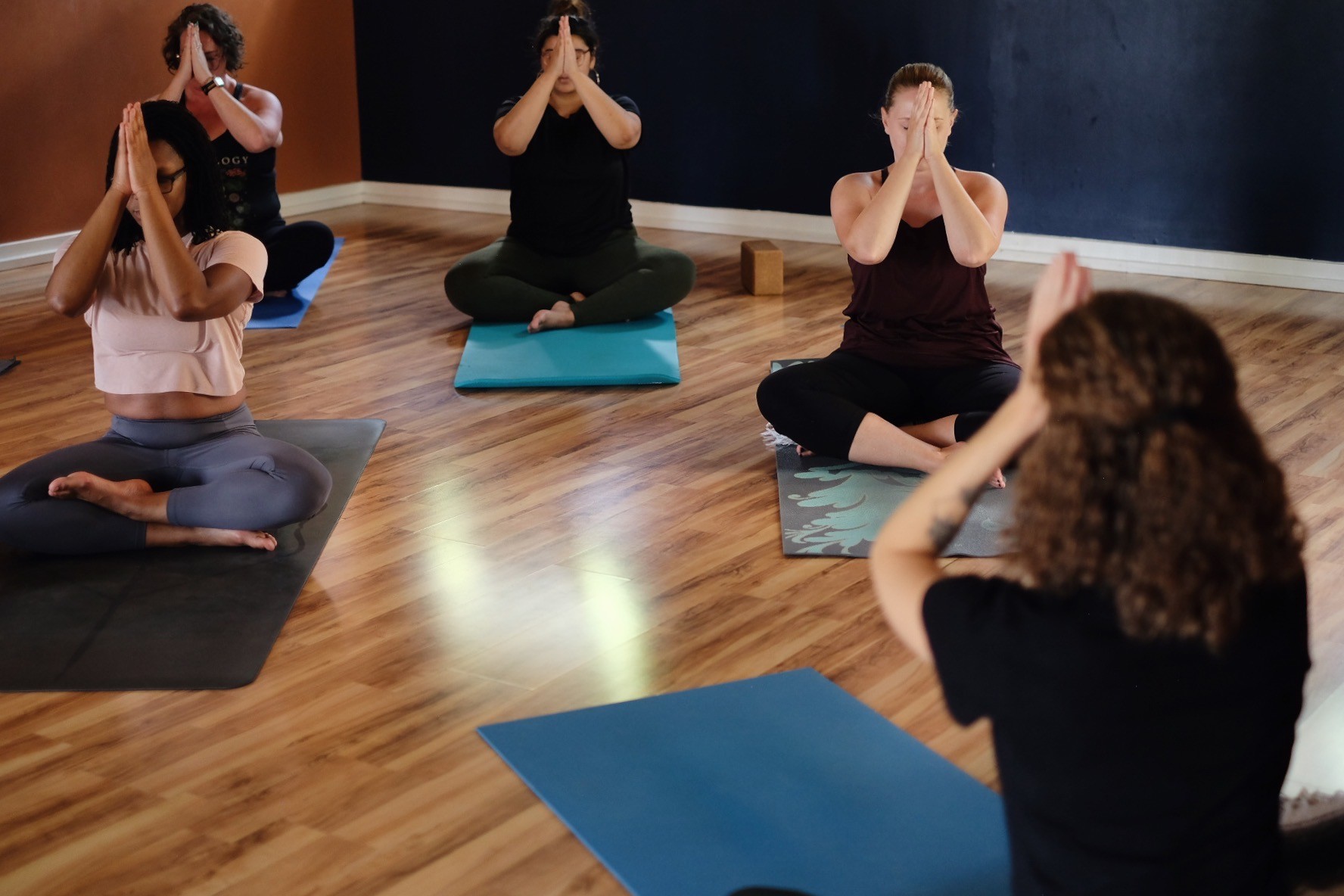
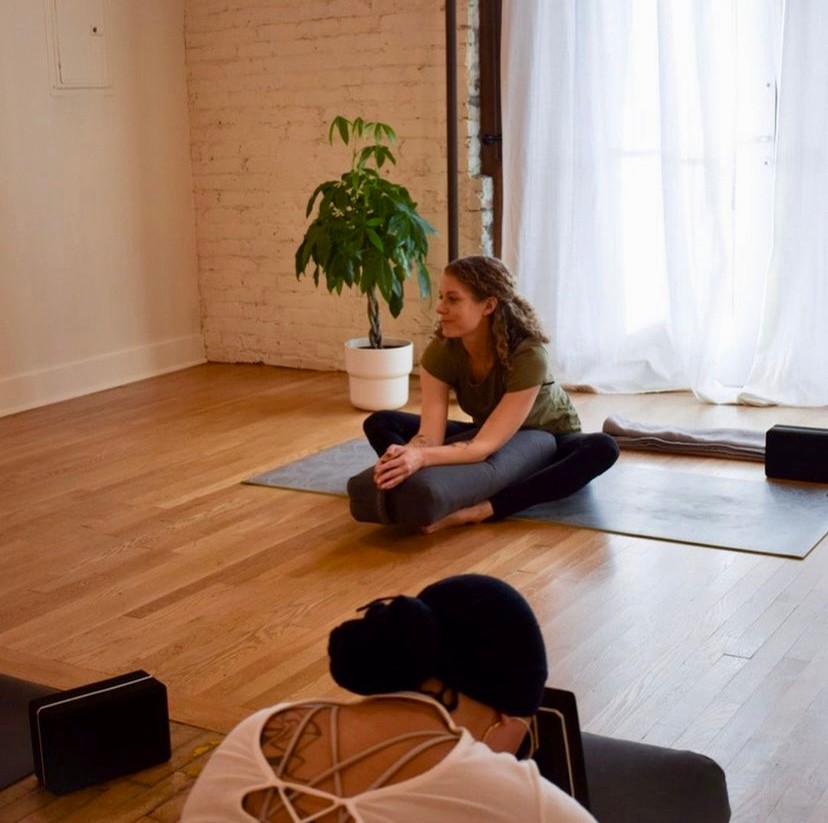
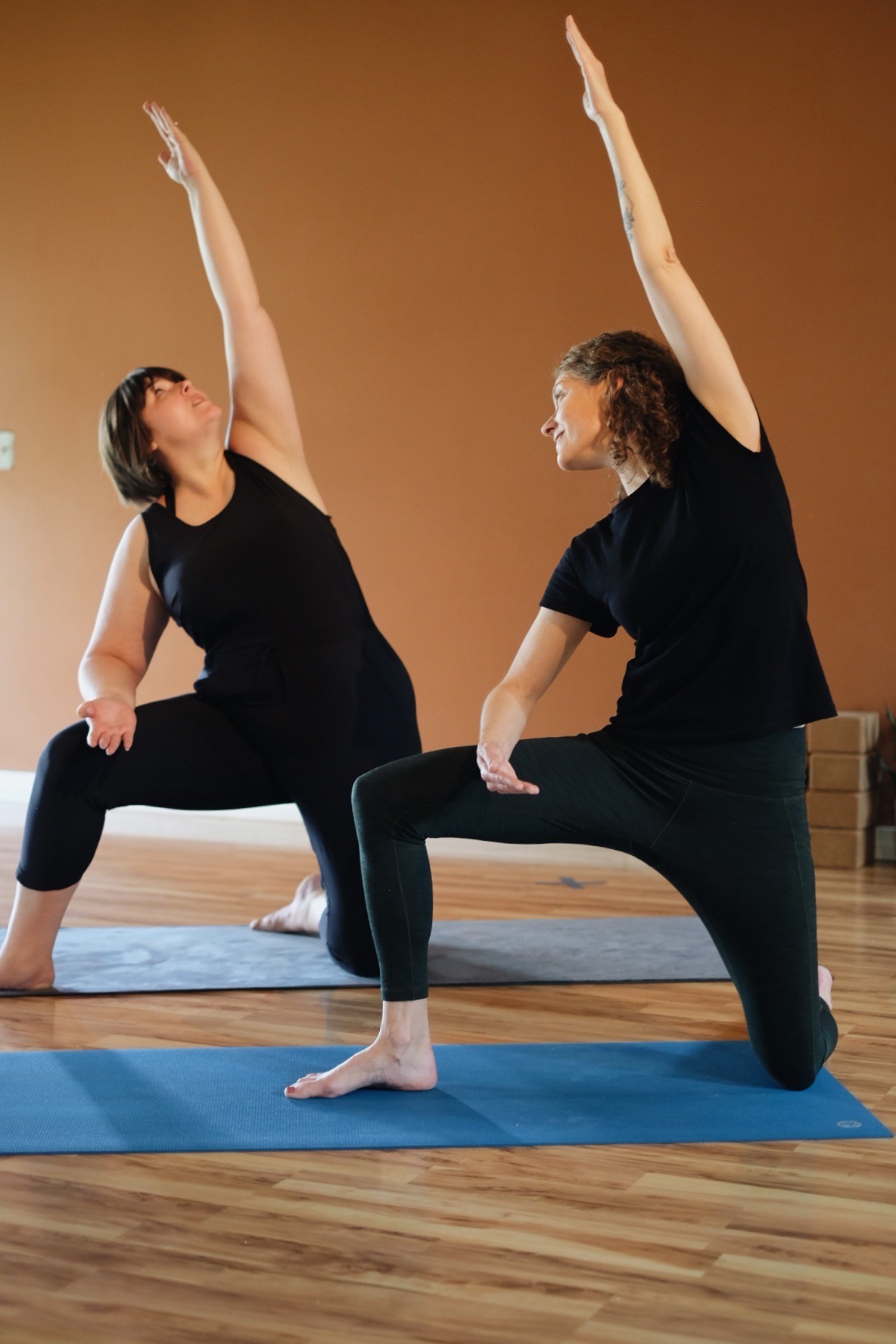
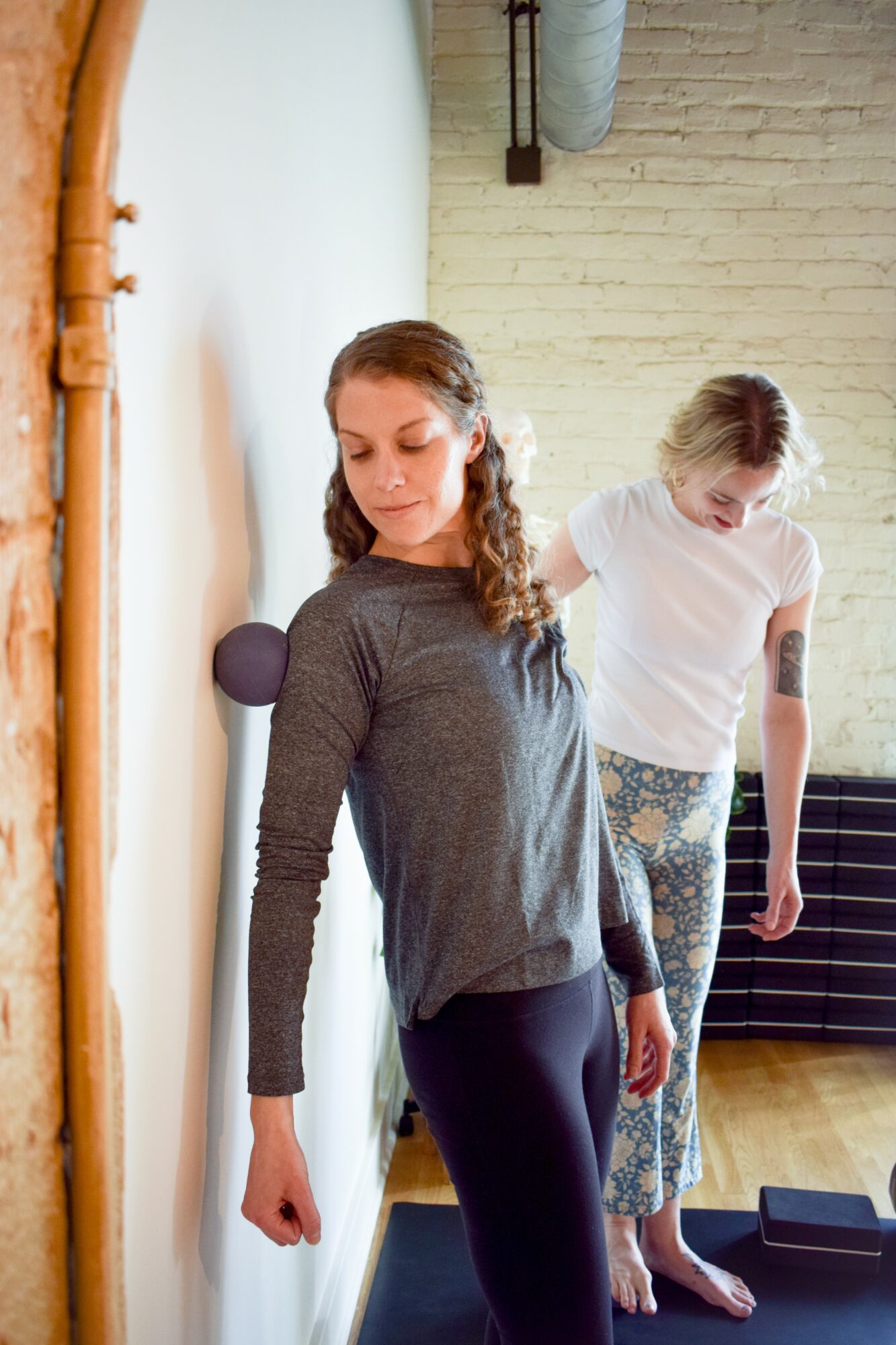
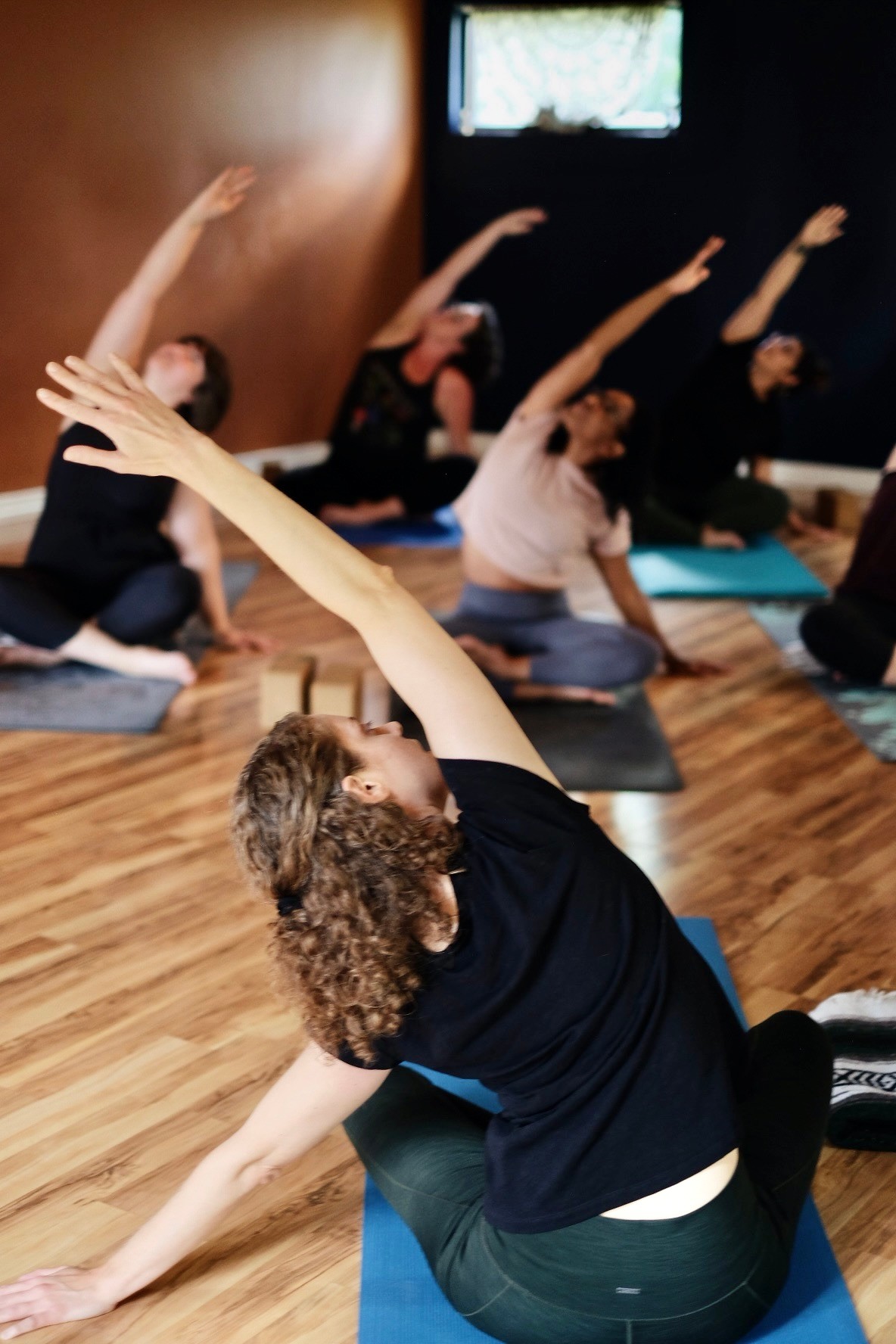 Image Credits
Image Credits
Trishia Knight and Veronica Foster












